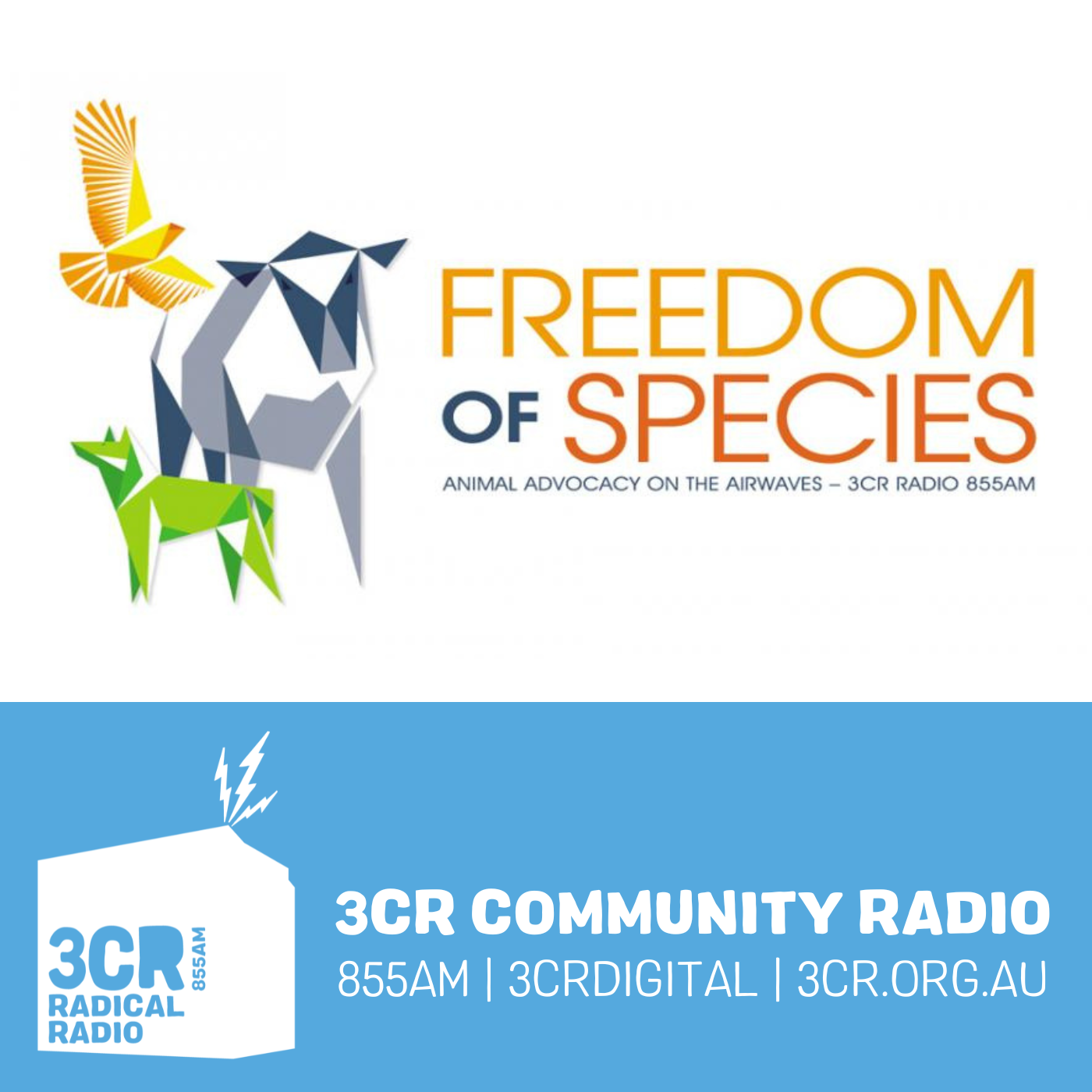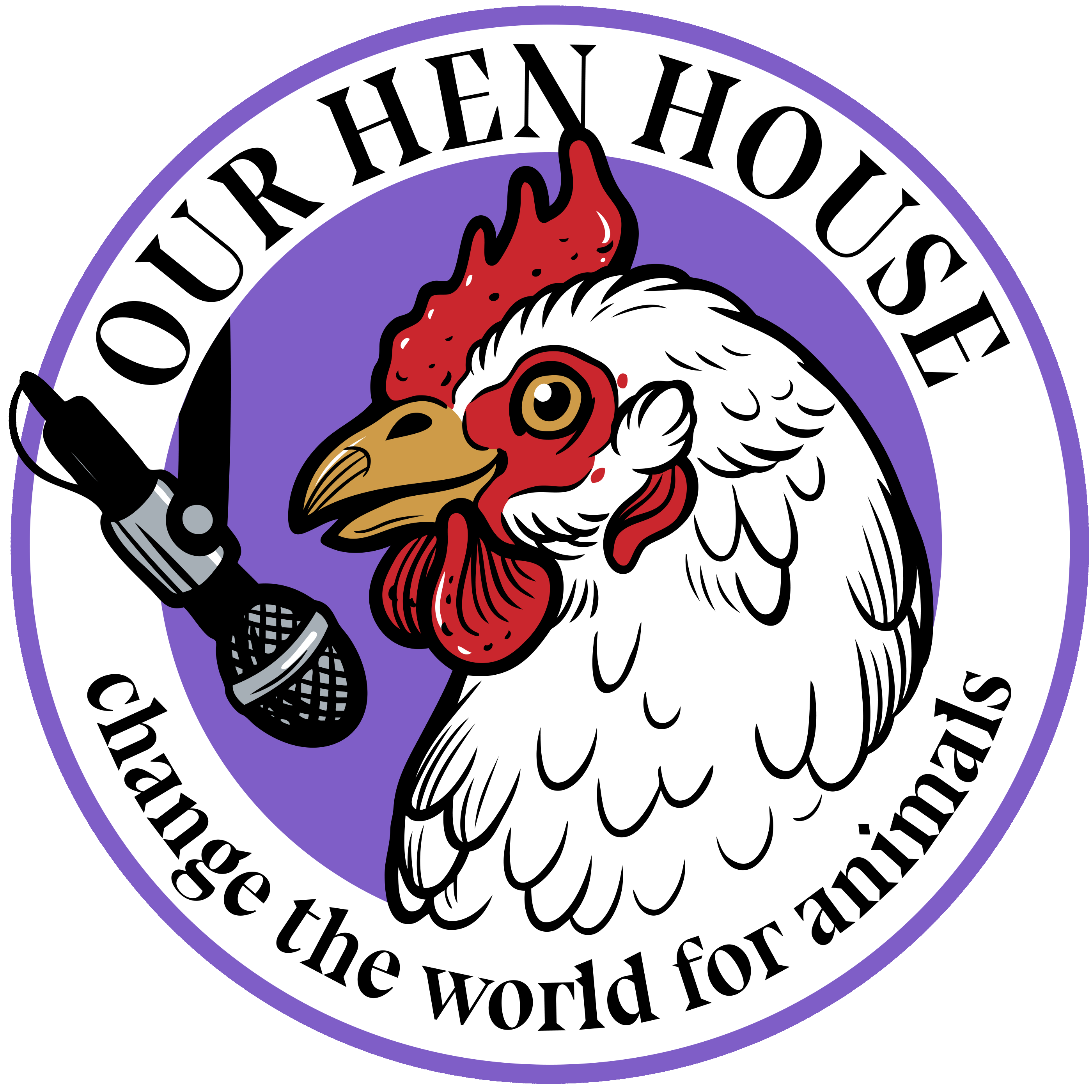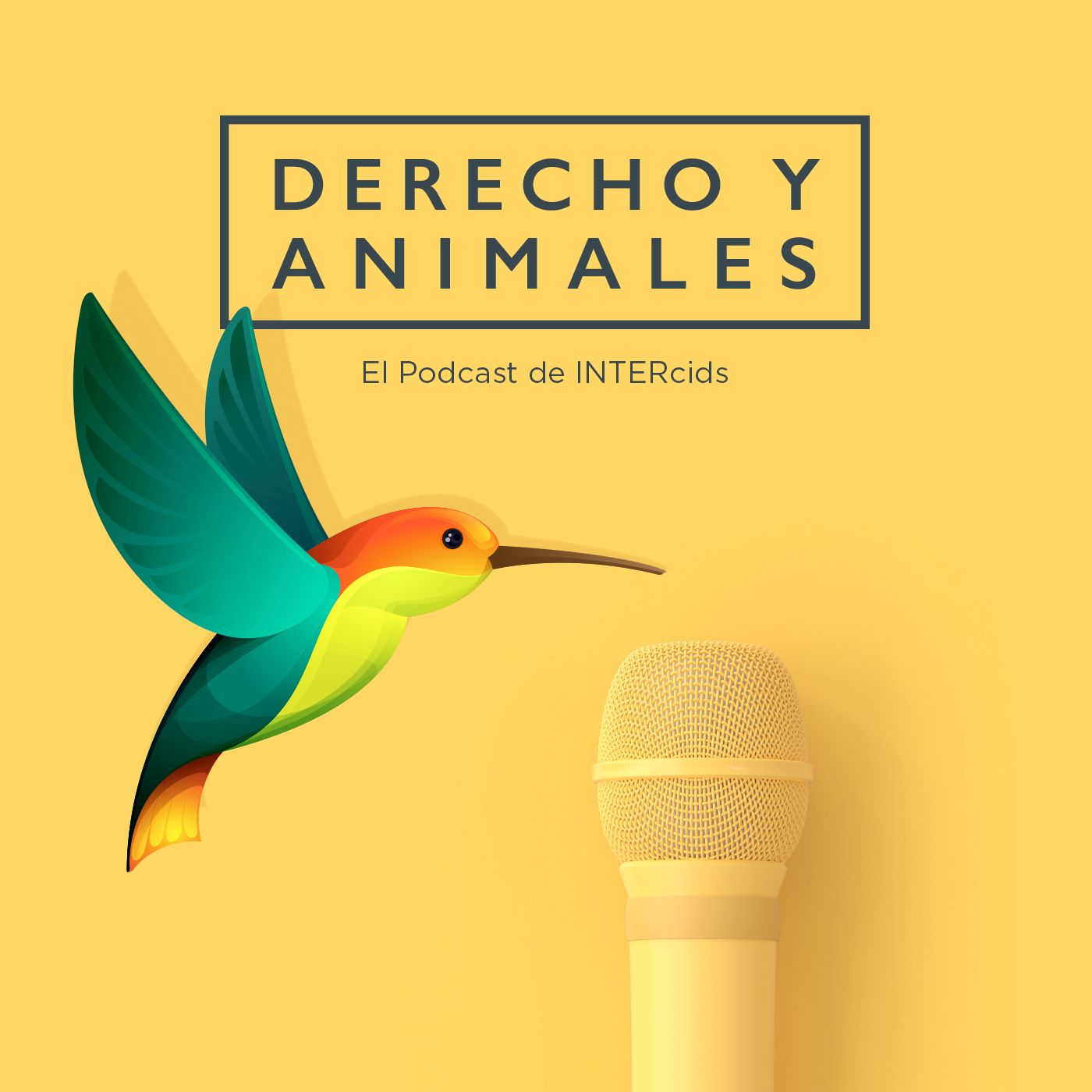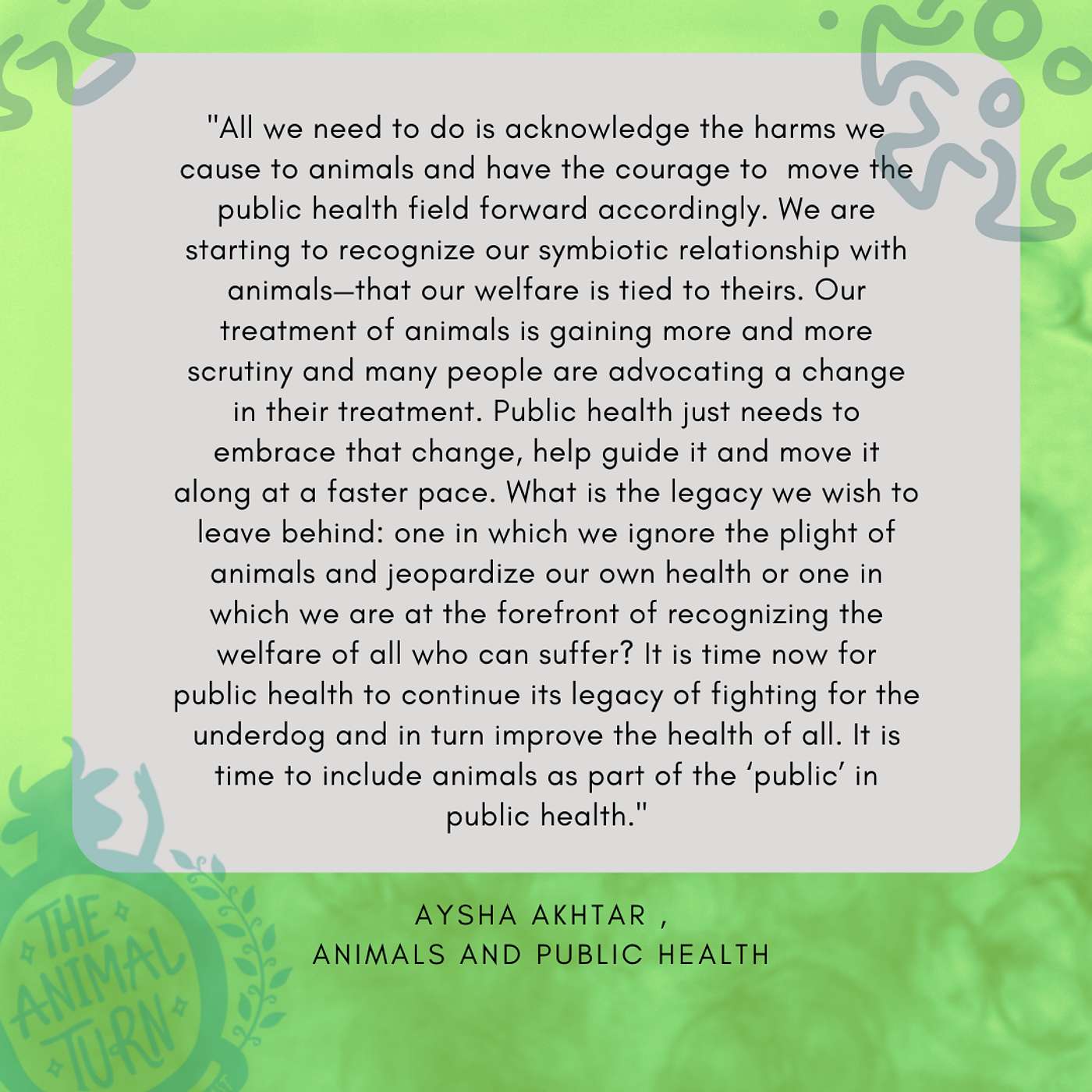The Animal Turn
Animals are increasingly at the forefront of research questions – Not as shadows to human stories, or as beings we want to understand biologically, or for purely our benefit – but as beings who have histories, stories, and geographies of their own. Each season is set around themes with each episode unpacking a particular animal turn concept and its significance therein. Join Claudia Hirtenfelder as she delves into some of the most important ideas emerging out of this recent turn in scholarship, thinking, and being.
The Animal Turn
S5E2: Bioethics with Jeff Sebo
In this episode Claudia talks to Jeff Sebo about bioethics and how it straddles both health and environmental ethics. They touch on some of the grounding principles of bioethics and how these principles frequently neglect to account for animals. They further discuss why a consideration of animals is necessary to achieve health and environmental justice.
Date Recorded: 16 August 2022
Jeff Sebo is Clinical Associate Professor of Environmental Studies, Affiliated Professor of Bioethics, Medical Ethics, Philosophy, and Law, Director of the Animal Studies M.A. Program, Director of the Mind, Ethics, and Policy Program, and Co-Director of the Wild Animal Welfare Program at New York University. He is author of Saving Animals, Saving Ourselves (Oxford University Press, 2022), co-author of Chimpanzee Rights (Routledge, 2018) and Food, Animals, and the Environment (Routledge, 2018). He is also an executive committee member at the NYU Center for Environmental and Animal Protection, an advisory board member at the Animals in Context series at NYU Press, a board member at Minding Animals International, a mentor at Sentient Media, and a senior research affiliate at the Legal Priorities Project. Find out more about Jeff on his website or connect with him on Twitter (@jeffrsebo)
Claudia (Towne) Hirtenfelder is the founder and host of The Animal Turn. She is a PhD Candidate in Geography and Planning at Queen’s University and is currently undertaking her own research project looking at the geographical and historical relationships between animals (specifically cows) and cities. She was awarded the AASA Award for Popular Communication for her work on the podcast. Contact Claudia via email (info@theanimalturnpodcast.com) or follow her on Twitter (@ClaudiaFTowne).
Featured:
Saving Animals: Saving Ourselves by Jeff Sebo; Animals and Public Health by Aysha Akhtar
Animal Highlight: Flying Foxes
Animals in Politics, Law, and Ethics researches how we live in interspecies societies and polities.
Biosecurities Research Collective
The Biosecurities and Urban Governance Research brings together scholars interested in biosecurity.
International Women's Podcasting Awards
The Animal Turn is proud to have been shortlisted in the International Women's Podcasting Awards.
iROAR Network
iROAR brings together podcasts that aim is to make the world a better place for animals.
Disclaimer: This post contains affiliate links. If you make a purchase, I may receive a commission at no extra cost to you.
The Animal Turn is hosted and produced by Claudia Hirtenfelder and is part of the iROAR Network. Learn more on our website.
- Leave a Review on Podchaser
- Check out The Animal Turn Merch.
- Support us on Patreon, Buy Me a Coffee, and Buzzsprout.
S5E2 – Bioethics with Jeff Sebo
00:00 - Introduction
02:34 - Welcome and future populations
- Germany and Austria have great vegan options. Awesome food scene in Berlin
- At a conference about Legal Priorities Project doing a project with legal long-termism in Hamburg, “about how we have obligations to future distant populations,” Jeff
- Gave a talk about how animal law is relevant to these conversations about what we owe to future distant generations
- “Were you talking about future animal populations and how we have obligations to them as well?” Claudia
- Animals and non-human populations as well as how our current treatment of animals is going to impact both future animals and humans
- Pave the way for social, political and economic systems so that all sentient beings are treated with compassion
- Sustainable Development has almost always implicitly discussed human populations, talking about animals is revolutionary
06:27 - How did you come to be interested in animal studies?
- Philosophy and sociology that taught me to think that animals matter and academic work can be powerful
- Went to grad school as a vegan, animal activist and did moral and political philosophy
- First post-doc hired in the animal studies initiative at NYU and helped to develop it further
- Lean into animal studies and think about what we owe animals in our personal lives and institutions
- Undergrad course that moved Jeff toward veganism
- The power of teaching and academy – what it means to think through issues differently.
- So many routes to caring about and working on this issue
- Tools for thinking about power
- NYU Bioethics centre and Jeff is affiliated
- Made connections with bioethics early on, took second post-doc in the department of bioethics at the National Institute of Health
12:18 - What is bioethics?
- Bioethics has a fragmented origin. Developed in the U.S. in two different places. One place focus on ethical questions on the environment and the survival of species. And other space with questions of health and what rights and duties do doctors and patients have.
- Bioethics – The ethical study of health and the environment
- But in current practice health has more of the centre of gravity
- There are also broader and environmental questions and the impacts of human activity on different populations
14:49 - The grounding principles of bioethics
- Autonomy – You have autonomy over your body and yourself
- Beneficence – doctors and health should want to do good
- Non-maleficence – Avoid doing harm
- Justice
- Massive and tantalizing concepts when thinking about animals, do you use them in your work?
- These are medical and research ethics principles and often used when it comes to interactions with humans. They could be understood simply as respect, compassion, and justice
- Autonomy means respecting the choices people make about their own lives
- Compassion means trying to help others and trying not to harm
- Justice means trying to share the benefits and burdens equitably.
- Lot of difficult questions about how to balance them but it matters that we aspire to achieve these
- With animals almost all of that goes out of the window, at most we focus on a weak version of the compassion principle
- Focus on the three R when it comes to animals: Replace, Refine, Reduce. Try to avoid using animals and if we have to try using less as possible but there is no respect of justice principle.
- We often treat the science as more important than the animal welfare. The knowledge or the medical advances we might gain are often used to justify the treatment of animals and it is a double standard that needs to change.
- Doctor-patient and medical research relations
- The extent to which animals are asked for permission and these actions influence their lives.
- The distribution of justice and benefits are not taken into consideration.
21:49 - Reproduction and Research Limitations
- Questions of reproduction – should animals have a choice
- Another question is do we have the right to breed and bring into existence animals so that we can use them
- Humans are creating new kinds of animals – human-animal chimera so that they can be “human-like enough” so that we can use them but “not human enough” so that we can use them
- We have a justifying and open-ended principle when it comes to using animals
- Very rarely do the tests used on animals translate into use for humans
- The question is not simply, “have we made progress as a result of researching on animals. Of course, the answer to that question is yes. But, rather, have we made progress relative to what we might have done otherwise?” Jeff
- There are limitations with animals in research and we know this – but we use it any way and we might be missing out or delaying treatments
- COVID-19 saw a shift in how this process happened and you wonder if we could be doing it more often
- “Shortage” of macaques
- Technology and Biotechnology is implicated in question of bioethics.
26:02 - Environment and Environmental Justice
- This involves health too. Public health and Global health matter.
- These questions matter at a large scale, not just the individual
- Includes questions like, “How might our treatment of animals be contributing to global health and environmental threats like pandemics and climate change?” and “how might global health and environmental threats like pandemics and climate change be impacting human and non-human populations at the same time?” Jeff
- Important and neglected questions despite the pandemic and the surge of extreme weather events
- What does it mean to include animals in these questions?
- Taking seriously how our use of animals are contributing to these threats, and how it uses resources and contributes to the spread of diseases
- The harms that we do to animals are wrapped up with how we harm the environment
- We need to phase down some of these industries – like factory farming, wildlife trade, and deforestation
- But neglected realm is that animals are also stakeholders in our policies on public health and environmental change – animals are affected
30:52 - What is Global Health and how are animals included?
- Loosely referred to health issues that arise at the population level – what is for an individual hunger can be famine at the population level
- Health for cities, nations, states, and ultimately the world
- Would you have this conversation at a species level or a problem level? – A difficult question
- If we want to know if we have human health, it is not just about the proliferation of species but with animals we only ever really focus on biodiversity
- Biodiversity is important but this doesn’t exhaust the questions about what we owe to other animals – we lack the tools to do this well
- Questions are hard – we need to improve our ability to estimate our impacts at the species and ecosystem level but also at the individual health and welfare level. Also recognise our limitations
36:01 - The im/possibility of change
- Just because it seems like an impossible task it doesn’t mean we shouldn’t try
- Conservation tends to focus on genetics not on questions of culture
- Changes in one part of the planet can impact the health and wellbeing of numerous populations in different parts of the world
- It seems impossible to improve our knowledge, power and political will to helping animals at scale but we should not trust our intuitions about what is and is not possible, and then they happen, and then they seem inevitable.
- We might create a world of perfect harmony, but we can at least create a world we treat animals better
- Born into situations and times not of our choosing with norms that seem intractable, but change happens in increments
40:03 - Recap
- Bioethics across two inter-related realms – one on health and one on environment but they are intimately connected.
- Both realms have focused on humans and future generations of humans.
- As animal studies scholars we could do more to ask questions about how things like compassion, autonomy, respect, environmental justice, biotechnology regard animals – and we are ethically obligated to at least think through these
- Matters of individual and global levels
- They matter as our patients and research subjects, as tools we are using, and they matter as stakeholders in these threats and our adaptation and mitigation.
- We need to convince those concerning humans to consider animals so that new coalitions and find solutions that work across the board.
- We need to avoid trading one harm for another – we should focus on phasing up plant-based options
- Bring animal studies considerations into health conversations too
- Challenge of sounding abstract, tangible examples help
43:15 - Touching on some examples
- The koalas in the wildfires and the mink in mink farming
- Book – “Saving Animals: Saving Ourselves”
- Book makes the case to reduce our use of animal as part of pandemic and climate change mitigation efforts and increasing our support for animals as part of our adaptation efforts. Looks at policy options in the short term.
- Koalas and the 2020 Australian Bushfires and animal populations were devastated, part of the reason is that animals have not evolved to deal with these global threats.
- Koalas run to the top of trees when they sense a threat, and they have no way of protecting themselves. When animals can escape, they might not have anywhere else to go
- Freya the Walrus being killed because she was labelled a pest
- When global threats happen, we either kill animals or leave them to die
- Minks were susceptible to COVID-19, and they can suffer from diseases from ese (not just transmit). They could be sites where viruses mutate and spread.
- Because we have underdeveloped tools for animals, humans elected to kill minks by the millions in very violent ways. Suffocated and buried in shallow pits.
- Happened with other farmed animals because of supply chain break downs to “destroy excess inventory”, Jeff
- When threats happen, they imperil humans and non-humans both directly and indirectly
- If we want good health and environmental policy and advocacy, we have to think about and reduce animal vulnerability and build resilience and sustainability for them too.
- What biosecurity means might be different things for different animals – how might biotechnology help us build new environments and reducing and eliminating reliance on some industries.
51:48 - Quote – Aysha Akhtar (Animals in Public Health)
- “All we need to do is acknowledge the harms we cause to animals and have the courage to move the public health field forward accordingly. We are starting to recognise our symbiotic relationship with animals, that our welfare is tied to theirs. Our treatment of animals is gaining more and more scrutiny and many people are advocating a change in their treatment. Public health just needs to embrace that change, help guide it, and move it along at a faster pace. What is the legacy we wish to leave behind? One in which we ignore the plight of animals and jeopardize our own health or one in which we are at the forefront of recognising the welfare of all who can suffer. It is time now for public health to continue its legacy of fighting for the underdog and in turn improve the health of all. It is time to include animals as part of the public in public health.”
- Opens up questions about who are citizens and who is worthy of consideration
- Takes courage to be the only person in the room to say lets talk about animals
55:00 - Current Projects: Artificial Intelligence and ‘Other’ Sentience
- Working on projects on public health and a new program focusing on consciousness and sentience of all sorts of non-human beings
- Develop general frameworks to thinking about our interactions with other sentient beings – possibly how we can take what we have learn from animals and apply it to AI
- Jeffsebo.net
- @Jeffrsebo on Twitter
- Is more time spent on AI or animals?
- Focused more in the animal case than in the AI case but were very salient this year with AI
- Can’t try to delay one topic to try and focus on one because oppressions are inter-connected – Don’t think in a zero-sum way
- Salient to decenter the human
- AI and animals are also increasingly melded together and will be a space which is important for topics of biosecurity and bioethics
- Questions about invertebrates have been vocal at the moment and we are moving the needle.
- Maybe vertebrate sentience is less in the news because people more readily accept that others (like fishes, octopuses, and insects) are sentient too
- Recognising sentience for more and more types of animals but there is still lots to be done but there is discussion about animal consciousness is exciting
- Goodbyes
01:03:07 – The Animal Highlight (Flying Foxes)
01:12:41 – Closing and Sponsors
- Thank you to Animals in Philosophy, Politics, Law and Ethics (A.P.P.L.E) for sponsoring this podcast; the Biosecurities and Urban Governance Research Collective for sponsoring this season; Gordon Clarke (Instagram: @_con_sol_) for the bed music, Jeremy John for the logo, Christiaan Menz for his editing work, and Amanda Bunten-Walberg for the Animal Highlight
Podcasts we love
Check out these other fine podcasts recommended by us, not an algorithm.

The Animal Highlight
Claudia Hirtenfelder
Knowing Animals
Josh Milburn
Species Unite
Species Unite
The Deal With Animals with Marika S. Bell
Marika S. Bell
The Other Animals
Laurent Levy
Beyond Species
Beyond Species
The Anthrozoology Podcast
Anthrozoology Podcast
Freedom of Species
The Freedom of Species Team
Our Hen House: Vegan & Animal Rights Movement | Stories from the Frontlines of Animal Liberation
Jasmin Singer and Mariann Sullivan
Derecho y Animales
Derecho y Animales
Storytelling Animals
Dayton Martindale
Species
mackenmurphy.org
Animal Law Matters
K & R Animal Law
The Humanimal Connection
Humanimal Trust
The Animal That Changed You
Katya Lidsky
Think Like a Vegan
Emilia Leese
The Shifting Lens: Viewing the Animal Experience
Tiamat Warda Rebecca Madrid
The Salmon People
Canada's National Observer
Comme un poisson dans l'eau
Victor Duran-Le Peuch



